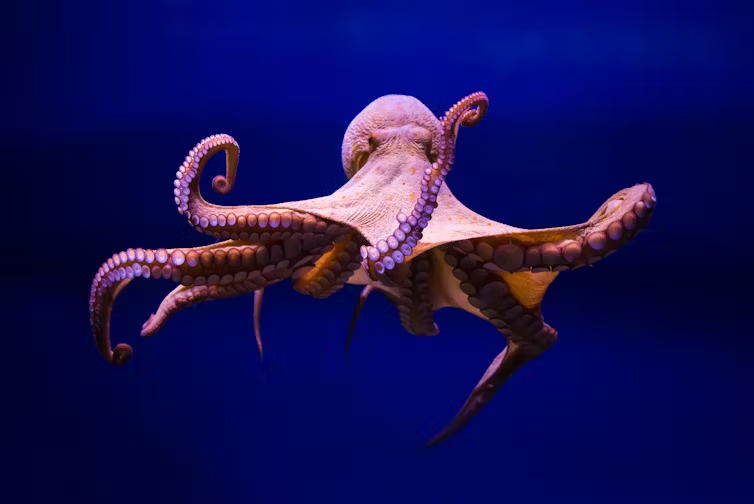When we think of the ocean’s most fascinating inhabitants, the octopus often comes to mind. With its eight arms, bulbous head, and remarkable intelligence, this cephalopod has captivated the hearts and minds of marine enthusiasts and scientists alike. But what makes the octopus truly extraordinary? Let’s dive into the depths of its world and explore the unique characteristics that set this creature apart.
First and foremost, the octopus is a master of disguise. Equipped with specialized skin cells called chromatophores, these remarkable animals can change their color and texture in the blink of an eye. This ability not only helps them blend into their surroundings, evading predators, but also plays a crucial role in communication with other octopuses. Imagine an underwater chameleon, shifting hues and patterns to convey emotions or intentions—this is the octopus in action.
Beyond their camouflage skills, octopuses are renowned for their intelligence. Studies have shown that they possess problem-solving abilities that rival those of some mammals. In laboratory settings, octopuses have been observed opening jars to access food, navigating mazes, and even using tools. Their complex nervous system, with a significant portion of their neurons located in their arms, allows them to perform intricate tasks and exhibit behaviors that suggest a high level of cognitive function.
The octopus’s lifestyle is as intriguing as its abilities. Most species are solitary creatures, preferring to roam the ocean floor in search of crustaceans and mollusks to feast upon. They are also known for their unique reproductive habits. After mating, female octopuses lay thousands of eggs and dedicate themselves to guarding and caring for them. In a remarkable display of maternal devotion, the female will often stop eating during this period, ultimately sacrificing her life for the next generation.
One of the most captivating aspects of octopuses is their ability to escape. Known for their flexibility, they can squeeze through the tiniest of openings, making them escape artists of the sea. This adaptability is not just a survival tactic; it showcases their remarkable physical capabilities. With no bones to restrict their movement, octopuses can contort their bodies in ways that seem almost magical.
Despite their fascinating traits, octopuses face numerous threats in the wild, including habitat destruction, pollution, and overfishing. As we continue to explore and understand these incredible creatures, it becomes increasingly important to advocate for their conservation. Protecting their habitats ensures that future generations can marvel at the wonders of the octopus.
In conclusion, the octopus is not just an animal; it is a symbol of the ocean’s mysteries and the wonders of evolution. From its extraordinary camouflage to its impressive intelligence and unique life cycle, the octopus continues to inspire awe and curiosity. As we learn more about these enigmatic creatures, we are reminded of the importance of preserving the delicate balance of marine ecosystems. So, the next time you find yourself by the ocean, take a moment to appreciate the hidden world beneath the waves, where the octopus reigns supreme.
Discover more from TheHubBuzz.com
Subscribe to get the latest posts sent to your email.

